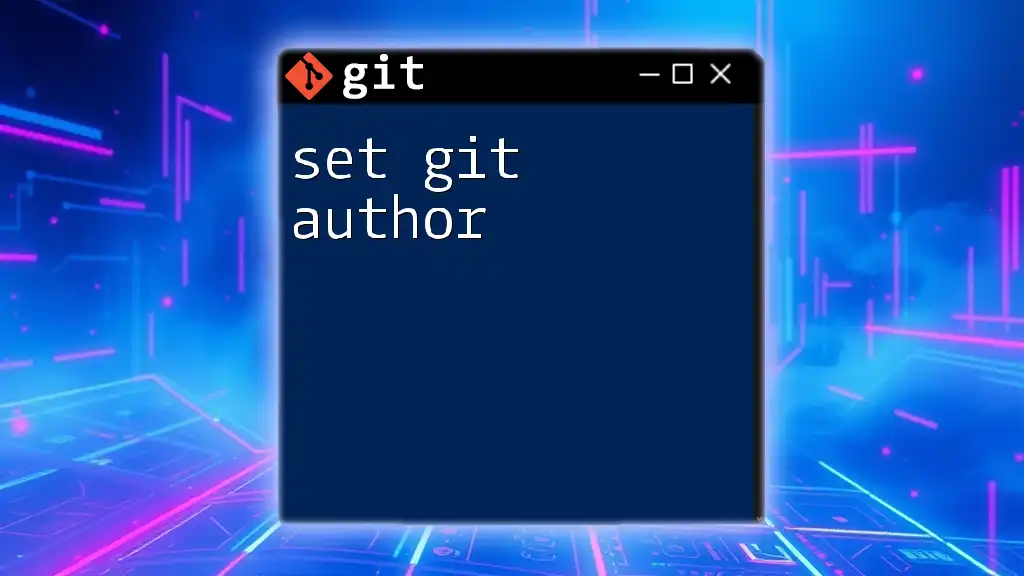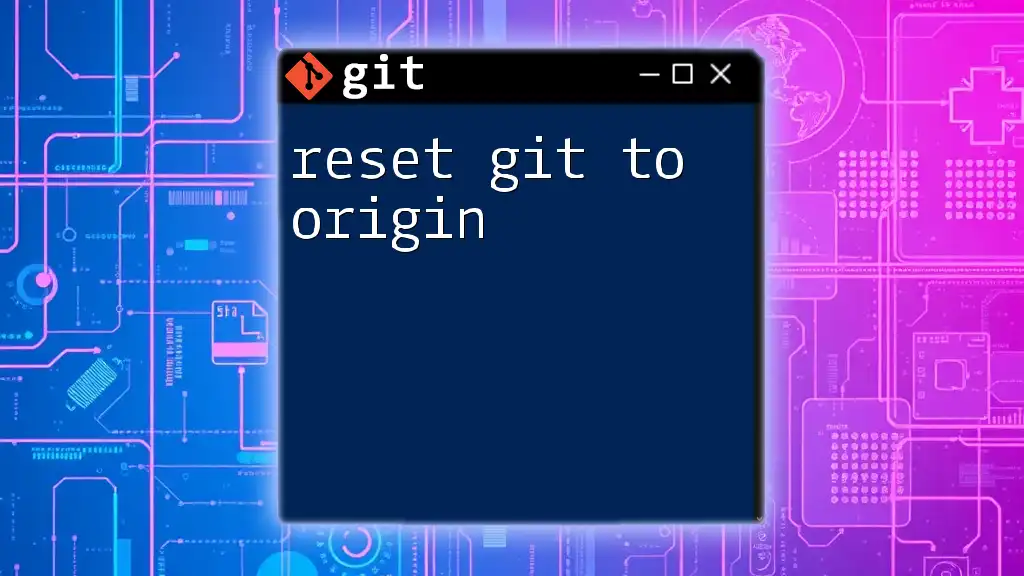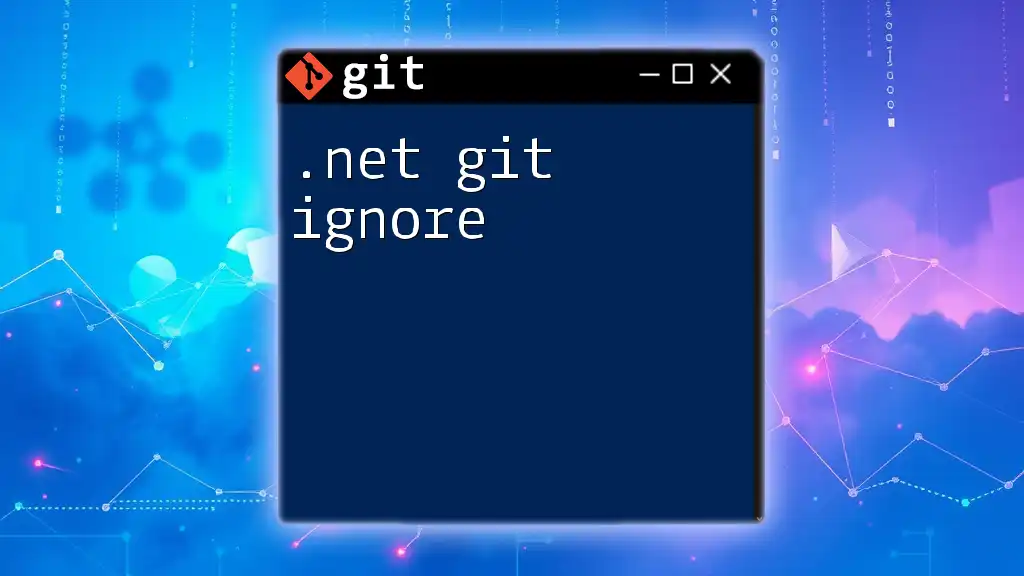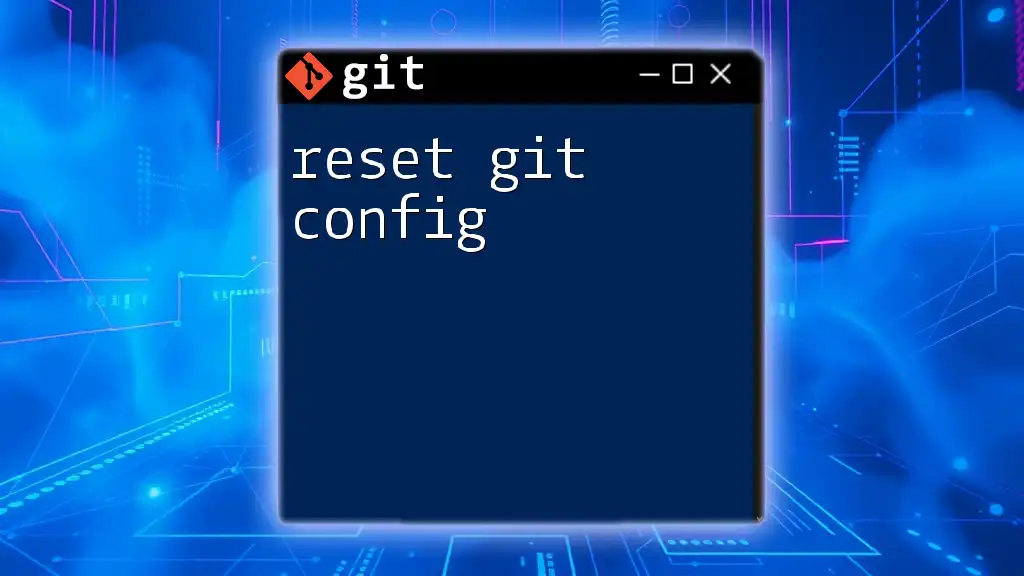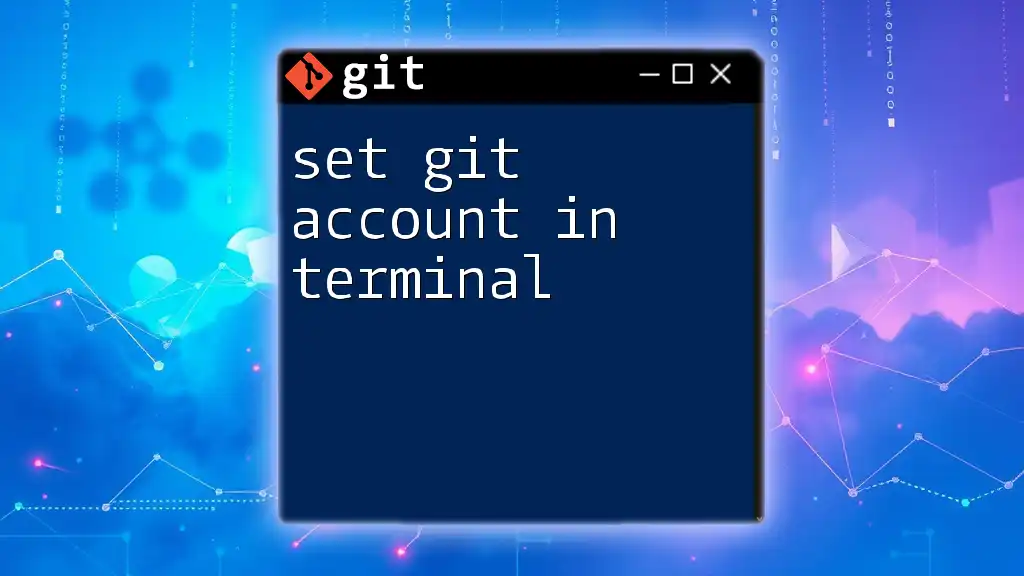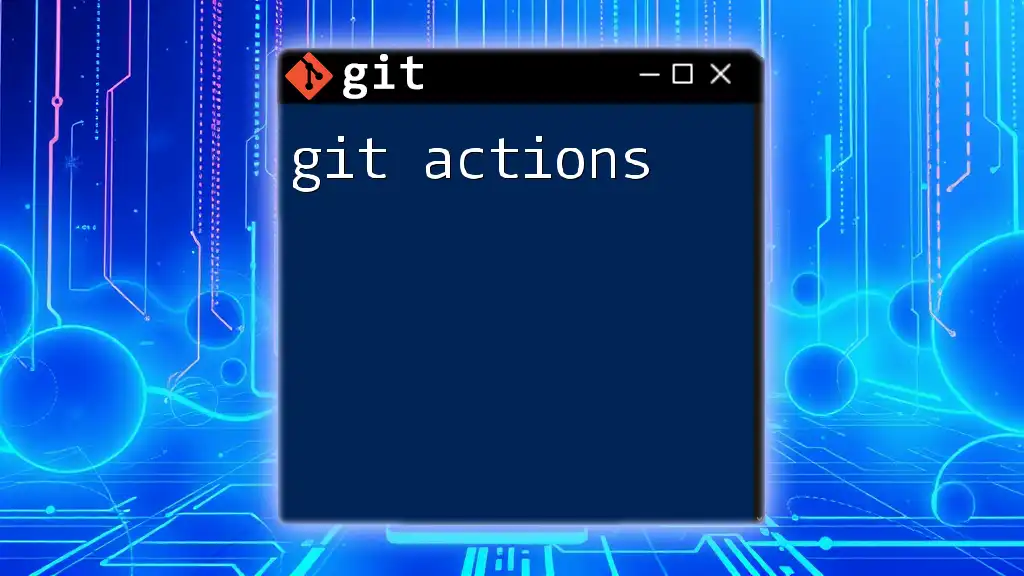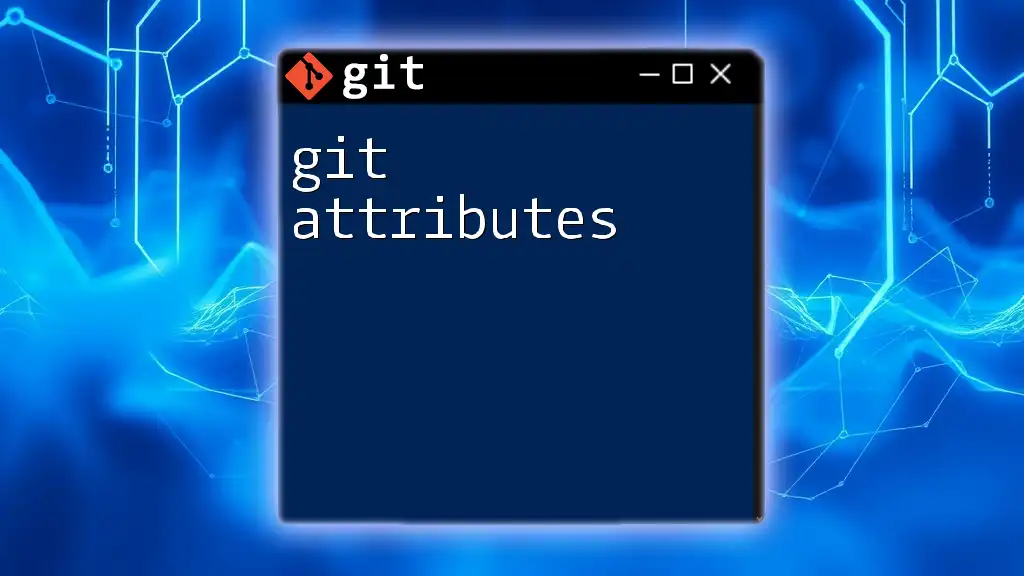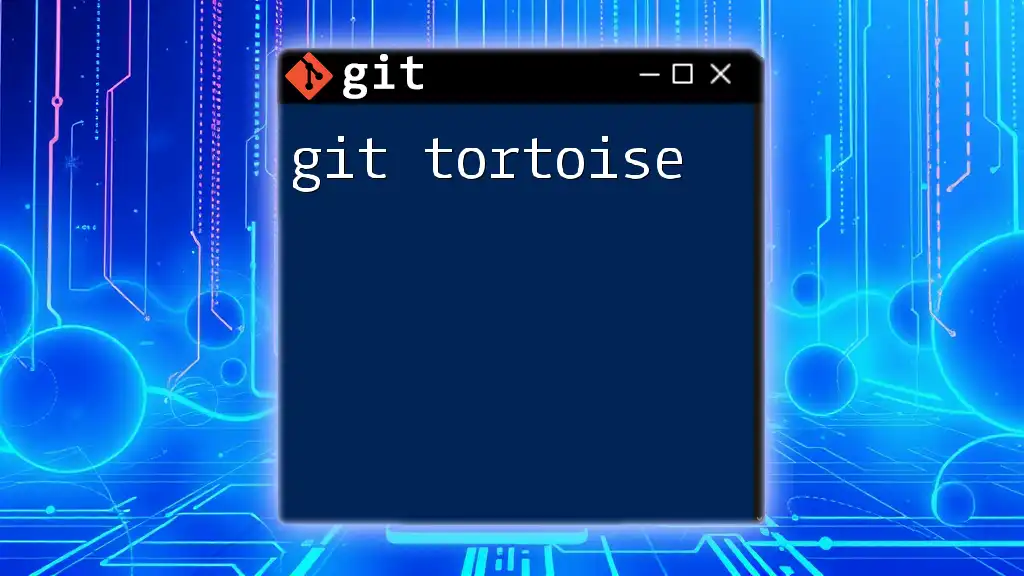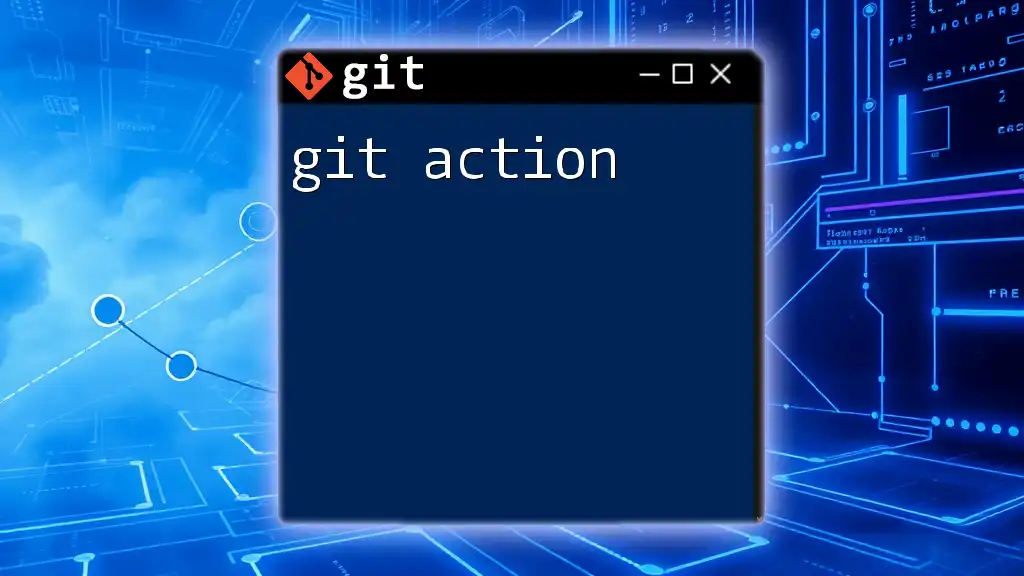To set the Git author for your commits, use the following command to specify the name and email associated with the author.
git config --global user.name "Your Name"
git config --global user.email "your.email@example.com"
Understanding Git Author Information
What is Git Author?
In the world of version control, Git Author refers to the individual who creates a specific change (or commit) to a project. Git tracks author information as part of the commit metadata, ensuring that contributors receive proper attribution for their work. This is essential in collaborative environments, where multiple developers may work on the same codebase, as it fosters transparency, accountability, and recognition.
Author Information in Git
Author information in Git consists of two critical components: the name and the email address of the contributor. These details not only identify who made the changes but also allow recipients of the project to contact authors if needed. Maintaining accurate author information is a best practice that positively impacts project collaboration.
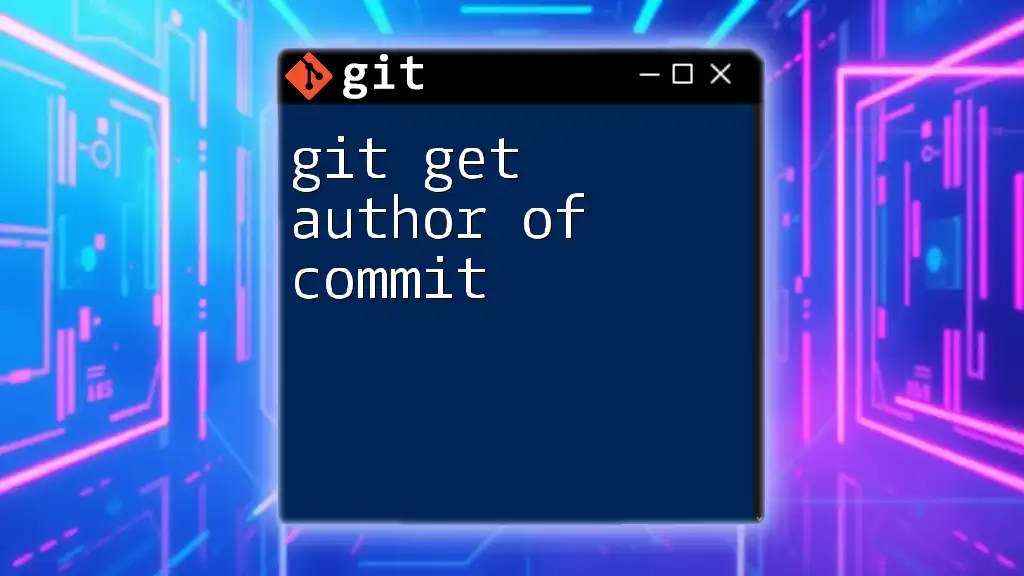
How to Set Git Author Information
Global Configuration
Global configuration in Git allows users to set their author information once, applying it to all repositories on the local machine. This is especially useful for personal projects or when an individual consistently contributes to multiple repositories.
To set the global author name and email, use the following commands:
git config --global user.name "Your Name"
git config --global user.email "you@example.com"
By using the `--global` flag, Git assigns this name and email address to all future commits in any repository on the system, eliminating repetitive configuration.
Local Configuration
In some scenarios, you might prefer to set author information for a specific repository rather than globally. This is particularly useful when collaborating on projects under different identities or organizations.
To set the local configuration, navigate to the desired repository and execute:
git config user.name "Your Name"
git config user.email "you@example.com"
This configuration only affects commits made in the current repository, allowing flexibility in managing author information for different contexts.
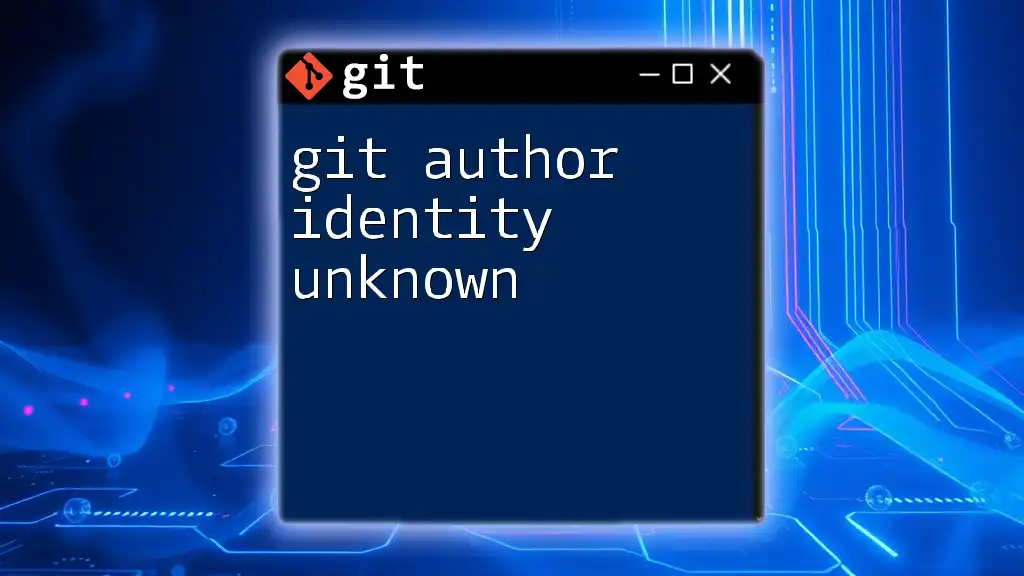
Overriding Author Information in Commits
Setting Author for a Single Commit
Occasionally, you may want to specify a custom author for an individual commit instead of the global or local settings. This can be achieved using the `--author` flag when creating a commit.
For example, to commit with a different author, use the following command:
git commit --author="Author Name <author@example.com>"
This command allows for temporary adjustments to author details, ensuring you can accurately reflect the contributor for that specific change.
Changing Author of Previous Commits
If you need to change the author information of existing commits, Git provides a powerful tool through interactive rebase. This feature allows you to modify commit history, ensuring that the correct authorship is represented.
Start by initiating an interactive rebase for the last `n` commits with:
git rebase -i HEAD~n
In the editor that appears, locate the commit you wish to change and replace the word `pick` with `edit`. This will allow you to amend the commit. After saving and closing the editor, utilize the command:
git commit --amend --author="New Author Name <newauthor@example.com>"
Once you've made the necessary changes, resume the rebase process with:
git rebase --continue
When modifying history, be cautious as it can disrupt the commit history for others working on the same project. Always communicate with your team before making such changes.
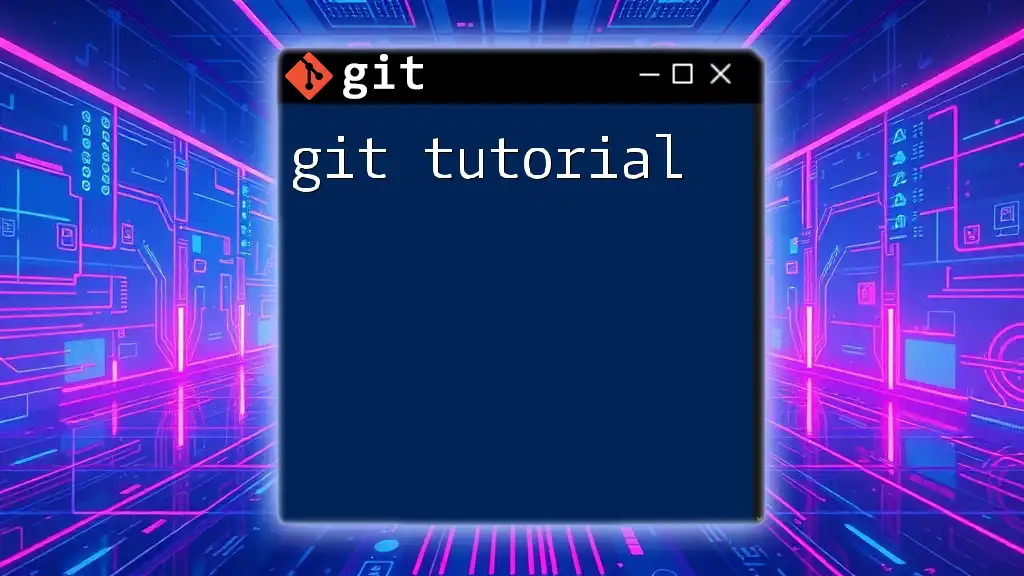
Viewing Current Author Configuration
Check Global Author Configuration
To verify your global author settings, run these commands:
git config --global user.name
git config --global user.email
These commands will output the global author details you have set. If they appear incorrect, you can adjust them using the commands provided earlier.
Check Local Author Configuration
To check the author information for the current repository, you can use:
git config user.name
git config user.email
This allows you to confirm if the local settings differ from the global configuration, which helps ensure that the correct author information is reflected in commits.
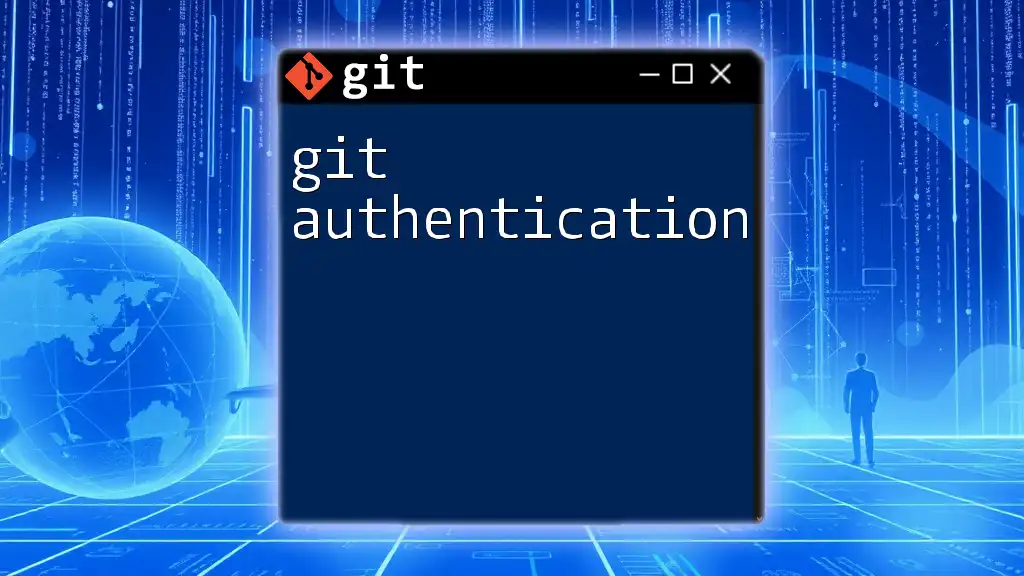
Common Issues and Troubleshooting
Common Mistakes When Setting Authors
Setting author information in Git is generally straightforward, but users often encounter minor mistakes. Common errors include typos in commands or missing `--global` flags that result in unexpected configurations. If you notice that your commits do not reflect your intended author information, check your configuration settings using the commands above and amend as necessary.
If Author Information is Incorrect
If you suspect incorrect author information in your commit history, git blame can help trace the authorship of each line in a file. This tool displays the latest commit and its author next to each line, allowing you to identify discrepancies.
Should you find incorrect details, you can follow the rebase process outlined earlier to correct the author information in past commits.
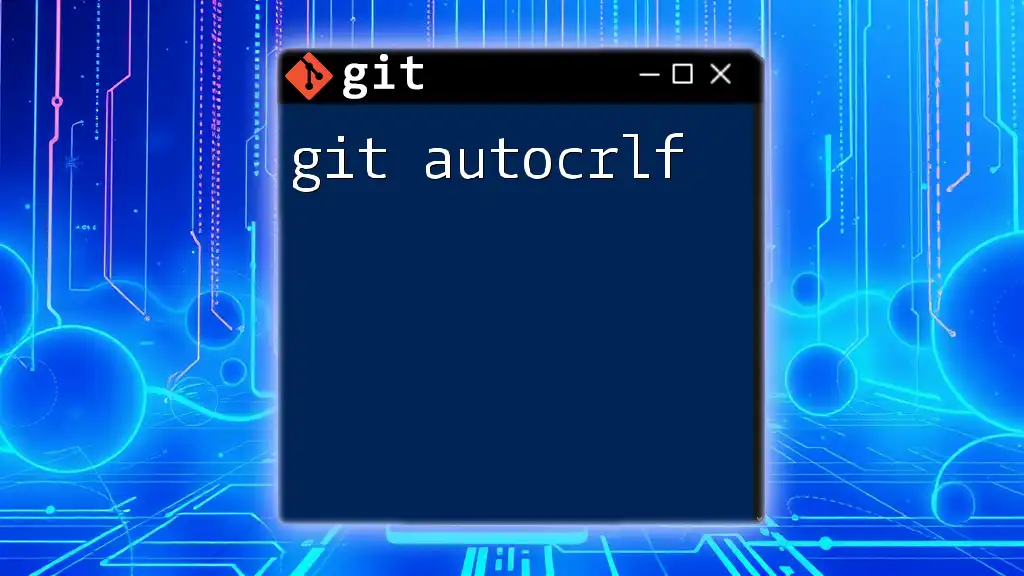
Best Practices
Using Consistent Author Information
Maintaining a consistent author identity across projects is essential for accountability and professionalism. Consistency fosters better communication and recognition within the development community. If you contribute to multiple projects, consider using different profiles as necessary, but ensure clarity with your team about your choices.
Collaborating with Teams
When working in collaborative environments, it’s crucial to manage author information to prevent confusion. Always inform your team members if you are changing your author details, especially in shared repositories. Using personal emails for professional projects can protect your privacy while still ensuring accurate attribution.
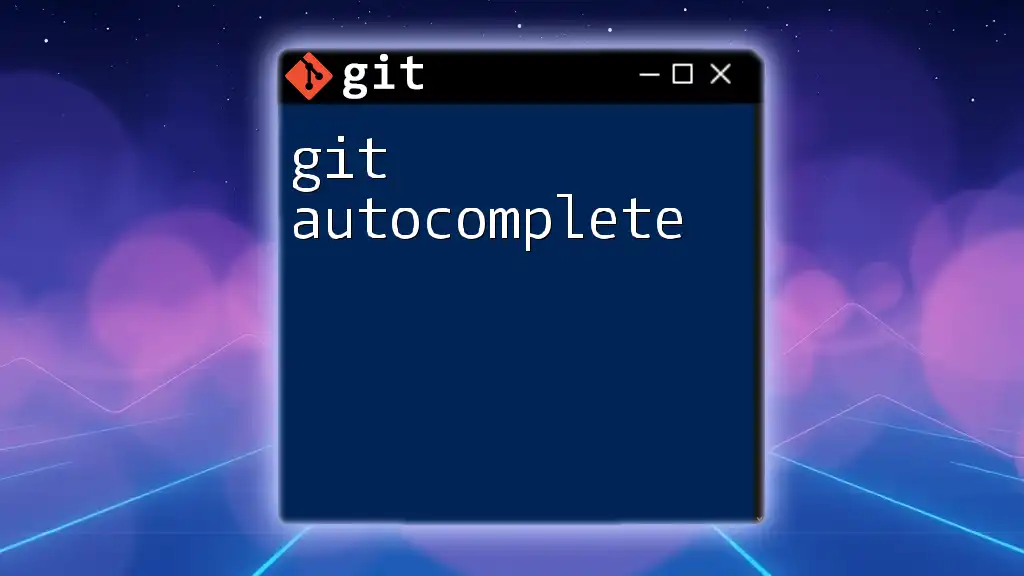
Conclusion
Setting and managing Git author information is a fundamental aspect of using Git effectively. By understanding both global and local configurations, as well as knowing how to override and change author details, you can ensure that the contributions you or your team members make are accurately reflected in project histories. Keeping your author information up to date helps maintain a professional environment in collaborative coding efforts.
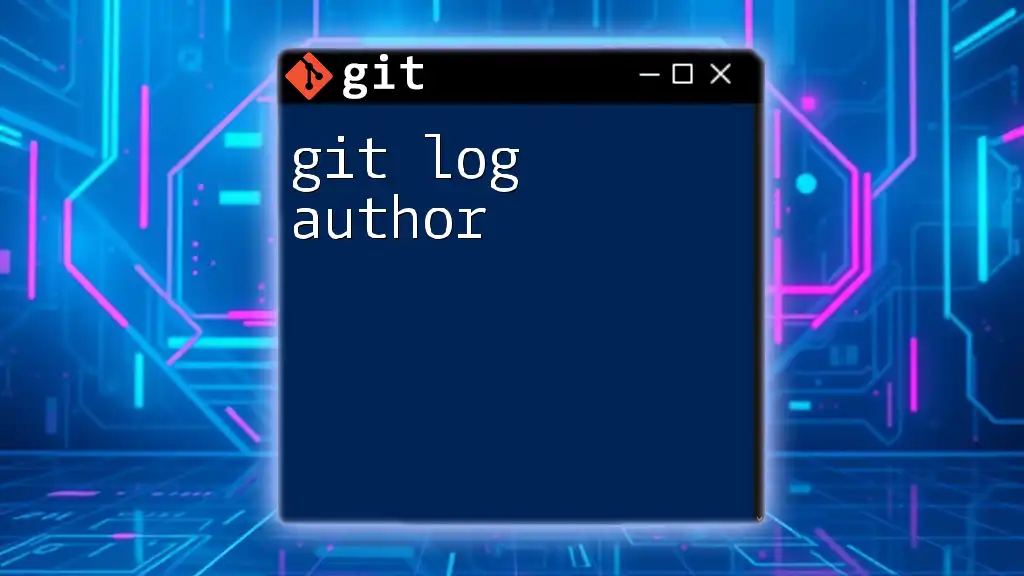
Call to Action
Continue to explore further posts on common Git commands to enhance your skills and contribute effectively within your projects.

